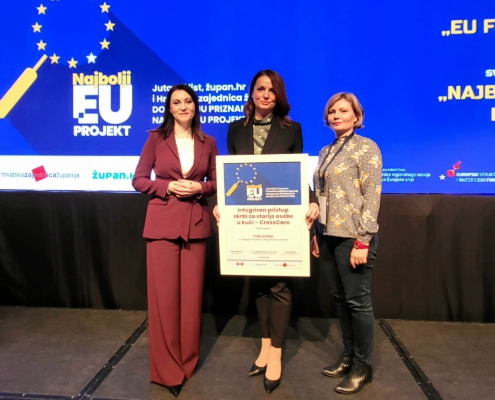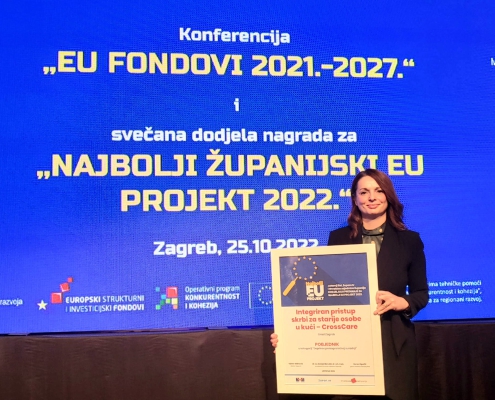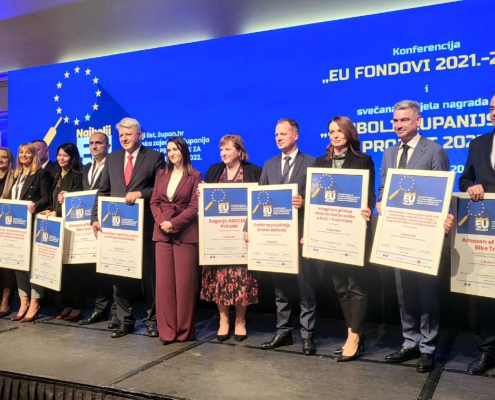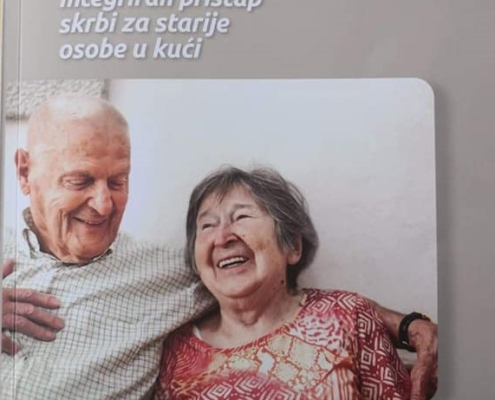CrossCare wins 2022 Best EU Project in Croatian Counties award
EU-funded project CrossCare (‘Integrated Approach to Care for the Elderly in the Home’) won the Best EU Project in Croatian Counties award for 2022 on 25 October 2022. The project was selected from among 37 entries – EU-funded projects from the 21 Croatian counties competing in the category ‘Contribution to cross-border cooperation’. The award was given out by the Minister for Regional Development and EU Funds of Croatia, Ms Nataša Tramišak. The winning project brought together the City of Ljubljana, the City of Zagreb, lead partner Zavod za oskrbo na domu Ljubljana (Ljubljana Institute for Home Care), Ustanova za zdravstvenu njegu u kući Zagreb (Zagreb Institute for Healthcare at Home), Center za pomoč na domu Maribor (Maribor Centre for Help at Home), Dom zdravlja Čakovec (Community Health Centre Čakovec), and many other partners. The main goal of the project was to improve the social inclusion of different groups of seniors, reduce social inequalities and improve the quality of life of seniors.
As part of the project, project partners provided free healthcare services, ranging from physiotherapy, occupational therapy, dietetics to nursing services, to seniors in their home between 1 September 2018 and 30 August 2020. Two years after the project completion, the lead partner, Zavod za oskrbo na domu Ljubljana (Ljubljana Institute for Home Care) continues to provide free in-home services of physiotherapy, occupational therapy and nursing to older people with financial support from the City of Ljubljana. This has encouraged the City of Zagreb to secure funding and ensure that occupational therapy services are further provided to older people in need, and the Center za pomoč na domu Maribor (Maribor Centre for Help at Home) that keeps providing physiotherapy and occupational services to older users in their home.
In addition, one of the project deliverables was also the document called ‘Programme and provision of occupational therapy services as a segment of integrated home-based care for the elderly (available in Slovene: Program in način izvajanja storitev delovne terapije kot segment celostne oskrbe na domu za starejše). The document helped improve the quality of life of older people that used these services. In essence, the CrossCare project aimed to ‘deinstitutionalize’ services, shifting care and support of seniors to their home. This applied especially to the seniors who needed such help and care but were unable to arrange for it themselves at the relevant institutions for various reasons or to the seniors for whom the system had failed to provide the services that would match their needs.









